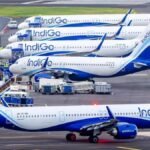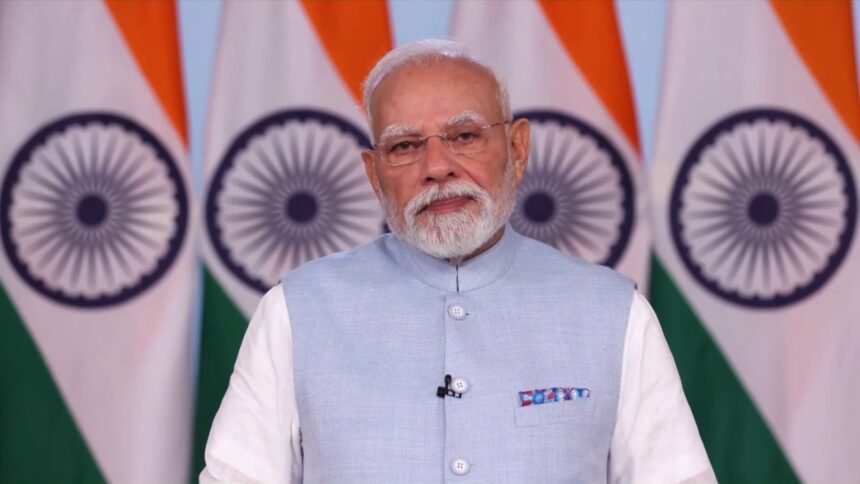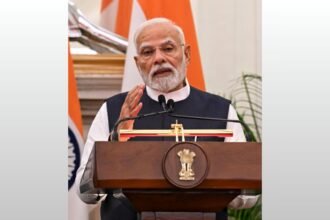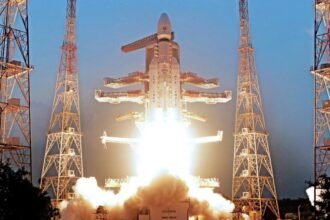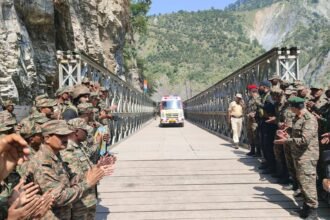“A Viksit Bharat is one where progress meets purpose where development empowers every citizen” says Prime Minister
Mumbai, October 8: Prime Minister Narendra Modi inaugurated the Navi Mumbai International Airport (NMIA) on Tuesday, terming it a milestone that will redefine India’s aviation and urban mobility landscape. Built at a cost of ₹19,650 crore under a public private partnership model, NMIA is designed to handle 90 million passengers annually and 3.25 million metric tonnes of cargo, emerging as the country’s largest greenfield airport project.
In the same event, the Prime Minister also dedicated Phase 2B of Mumbai Metro Line-3, extending from Acharya Atre Chowk to Cuffe Parade, marking the completion of Mumbai’s first fully underground metro system. The metro project, costing over ₹37,000 crore, is expected to transform daily commutes for over 13 lakh passengers, cutting travel time between South Mumbai and Aarey from two hours to barely forty minutes.
Infrastructure as the Engine of a Developed India
Addressing the gathering, Shri Modi said the inauguration marks “the beginning of a new chapter in Mumbai’s story of progress.” He described the NMIA’s lotus-shaped architecture built on the land of Chhatrapati Shivaji Maharaj as a fusion of “culture and prosperity,” symbolising India’s blend of tradition and innovation.
The Prime Minister underlined that the new airport will connect Maharashtra’s farmers and small industries to global markets by enabling direct export of fresh produce, fishery products and agricultural goods to Europe and the Middle East.
When aspirations meet opportunity, the journey from developing to developed becomes inevitable,” the Prime Minister said, reiterating his government’s focus on speed, scale and sustainability.
Transforming Aviation and Mobility
Since 2014, India’s airport network has more than doubled from 74 to over 160, driven by the government’s UDAN (Ude Desh ka Aam Nagrik) scheme. The Prime Minister noted that millions of citizens “those wearing hawai chappals” have flown for the first time in the past decade, realising a long-held dream of affordable air travel.
He emphasised that India has now become the world’s third-largest domestic aviation market and the growing demand for aircraft has opened new avenues for engineers, pilots and maintenance technicians. The government’s goal, he added is to make India a global Maintenance, Repair and Overhaul (MRO) hub by the decade’s end.
Integration Through ‘One Nation, One Mobility’
The Prime Minister also launched the ‘Mumbai One’ integrated mobility app, linking 11 public transport operators across metro, rail, monorail and bus networks. The app offers a single digital ticket for multiple modes of transport, eliminating queues and promoting digital payments.
“This is a step toward seamless connectivity One Nation One Mobility” Shri Modi said.
Skill and Employment Initiatives for Youth
Highlighting India’s demographic advantage, Shri Modi launched Maharashtra’s Short-Term Employability Programme (STEP), covering 400 ITIs and 150 technical schools. The initiative introduces 2,500 new training batches in emerging sectors like AI, IoT, robotics, electric vehicles, solar energy and additive manufacturing.
He also referred to the ₹60,000 crore PM-Setu scheme, linking ITIs with industry as part of the government’s larger effort to align education with employment.
India’s youth are our biggest strength. Every policy today is aimed at creating opportunities for their skills to shape a developed India,” he said.
National Security and Self-Reliance
In a strong assertion on national security the Prime Minister recalled the 2008 Mumbai terror attacks, accusing previous governments of “sending a message of weakness” and “succumbing to foreign pressure.” He contrasted this with his administration’s approach, citing Operation Sindoor as evidence of India’s readiness to respond decisively.
For us, nothing is more important than the safety and security of our nation and its citizens,” he affirmed.
He concluded by urging citizens to adopt ‘Swadeshi’ as a personal and national ethic:
“When every Indian proudly says This is Swadeshi, it strengthens our economy and creates jobs for our youth.”
The Road Ahead
The inauguration of NMIA and Mumbai Metro Line-3, combined with digital and skill-based initiatives, marks a major leap in India’s infrastructure narrative. With sustainability features like 47 MW solar generation, Sustainable Aviation Fuel storage, and EV bus services, NMIA is expected to stand as a model for future airports in Asia.
Maharashtra has always been at the forefront of India’s development,” Shri Modi said, “and this spirit of progress will continue to light the path toward Viksit Bharat.”







